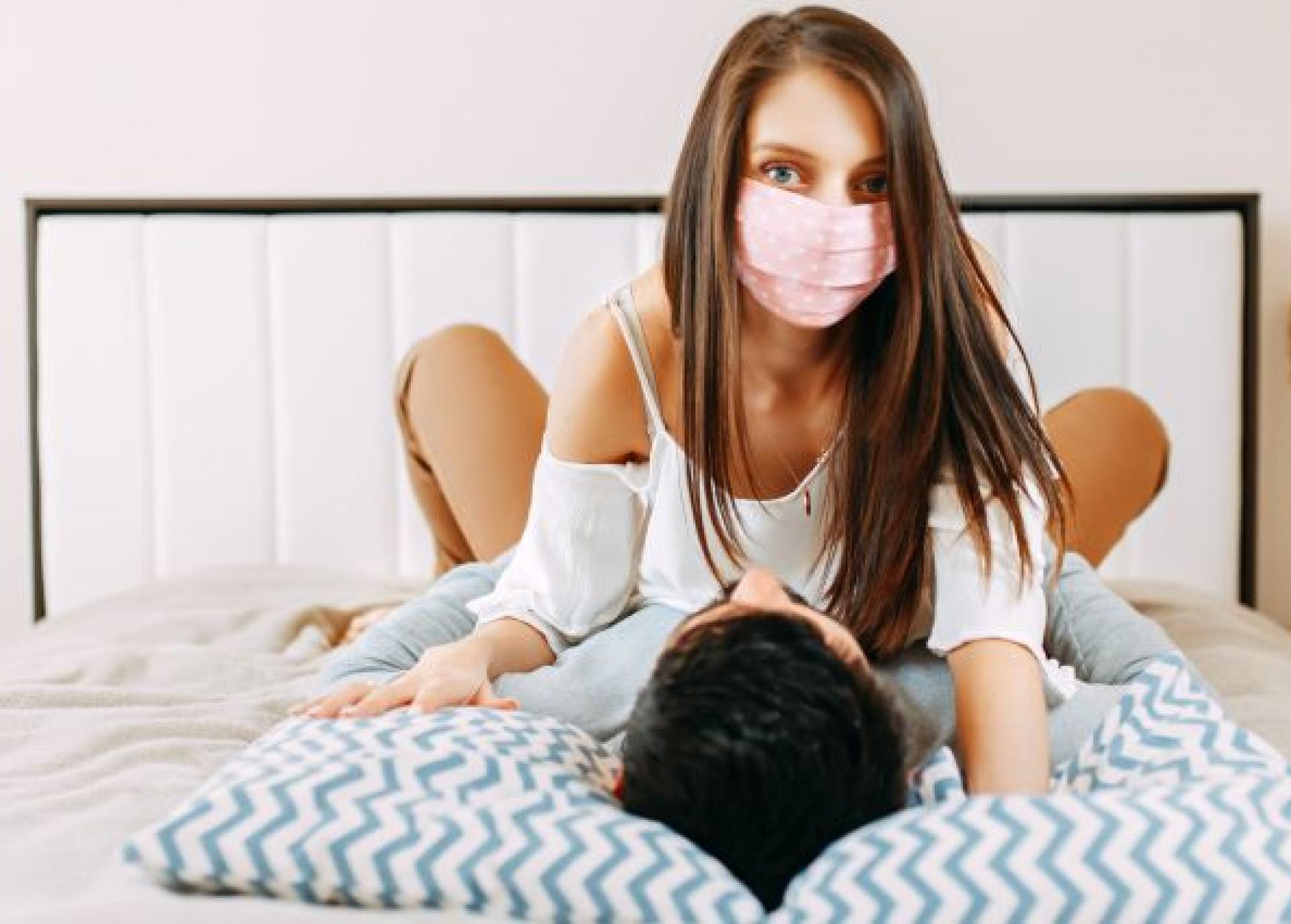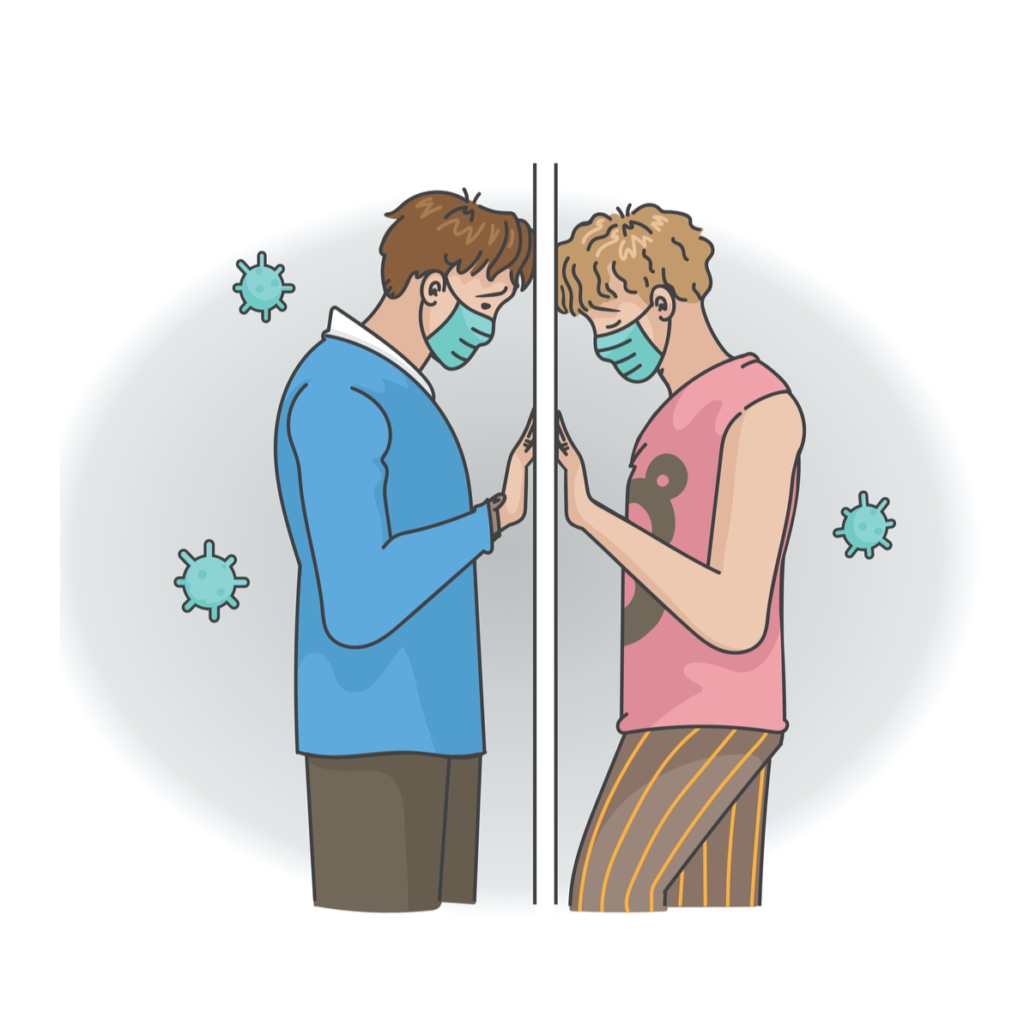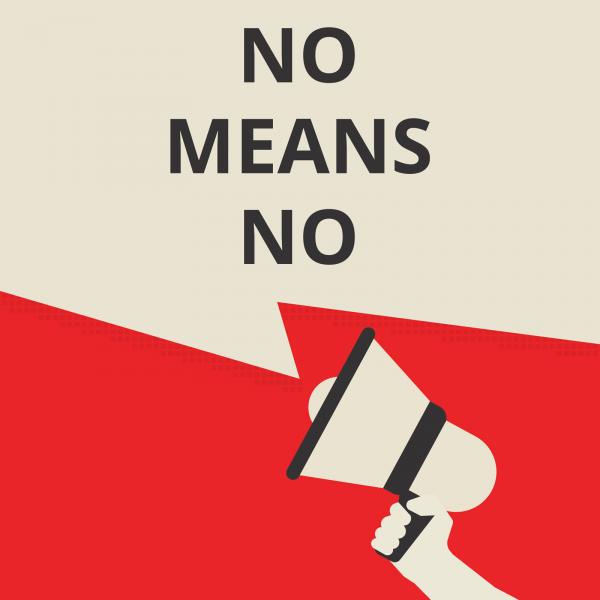Sex in Lockdown: How Did it Affect Us?


Sex in Lockdown is an article written by Sex & Relationship Engineer Colin Richards of Intimacy Matters. This article gives an overview of how a year of government restriction due to the global COVID pandemic influenced peoples' sex lives and how the lack of physical touch and intimacy affected their libido and, in many cases, feelings of self-worth. As we slowly emerge out of the pandemic, will there be a counter-reaction, and will there be a following a decadent decade similar to the roaring twenties following the major pandemic in 1918/19? The article is supported by results of a survey taken by 526 people on how lockdown personally affected their sex lives. From increased masturbation to missing a hug, these results show that it is not necessarily sex that we miss, but the basic need of another human's touch, whether sexual or not.
The Lockdown Effect
It's the first week of April 2021, and England is taking its initial tentative but eagerly anticipated steps out of lockdown.
LOCKDOWN, what a word that is! A word that before March 24th 2020, most of us associated only with dramatic scenes in American action movies. When presidents and the White House are under siege by an arch-villain, underworld organisation, or alien invasion. None of us would ever have imagined before March 24th, 2020 that this word would become so familiar and the consequences of it so accepted. Shops and schools closed, annual sporting events cancelled, airports almost at a grinding halt, bars, restaurants, theatres, and cinemas all empty of audiences. Gyms and hairdressers shut and even children's playgrounds, park benches, and visits to family out of bounds.
Much has been written in the media about the sacrifices and hardships endured during this pandemic. We have heard of the many remarkable people who have worked tirelessly to save lives, support communities, and generally look after one another. There is not one of us that the situation has not touched. Mask wearing, social distancing, and isolating have become routine and actions that society has reluctantly accepted as a necessity to combat the virus. But one of the hidden, almost unacknowledged consequences of this personal separation is the effect of the lack of intimate connection on people.

Never before in human history have so many millions been denied the pleasure of touching one another. The normality of a tender touch of a grandparent to a child. A hug between friends, the shake of a hand with a colleague, the arousing touch of a lover, the closeness of others on the dance floor, so many aspects of intimate touch has been denied in the past year.
Living conditions for many cohabiting couples have changed significantly in lockdown, with more time together, less alone time, and perhaps more time with their children.
Even those fortunate to be sharing this time with family or partners will have felt the strain of confinement. Niggles once escaped by going to the office or shops become irritations, arguments, emotional battles, sometimes resulting in relationship breakdown and more separation and intimate distancing.
Of course, in the greater picture, when the alternative is illness and death the lack of intimacy is a necessary sacrifice. But the impact of going without both friendly and sexual touch does have an impact, and one wonders whether, in the next few months, all that pent-up energy will result in an explosion of intimate and sexual exploration.
Why Do We Need to Be Touched?
Receiving intimate touch is one of the most pleasant sensations that most people can experience. The sense of touch is a vital part of the human condition and is arguably one of our earliest forms of communication. It is accepted that both our physiology and neurology are specifically designed to facilitate it, and when a person is touched, it also has a profound effect on our psychology. A slap given with aggression can hurt and indicate anger, causing us to feel fear or anger in return. A firm hand on the shoulder or back will give us a feeling of friendship or support. Intimate, caring touch, particularly when combined with stimulating arousal, can create a feeling of trust and closeness — a factor that is essential in the bonding of human relationships and thus the continuation of the species.
In the beginning …
From our earliest Homo Sapiens ancestors who lived 250,000 years ago to probably as recent as 5000 years ago, tactile, intimate touch between humans would almost certainly have been offered and received unconditionally. It would be given without cultural, religious, or social controls and probably not seen solely as sexual communication but also as a system to establish both mixed and same-sex cooperation. It would have stimulated group security and collaboration, ensuring — in times of danger and stress — the support between one human and another. It would have helped determine hierarchy, established trusting relationships, promoted teamwork and loving bonds.
Not much has changed in our biology since those early times, and for most of us, the pleasure and desire to be touched by another is still very much within us. When we are touched, the skin receptors pass the response information through to the central nervous system, which in turn influences the autonomic nervous system. The autonomic nervous system connects to the deepest and most ancient part of our brain, known as the Stem or Reptilian brain. This ancient part of the brain can be traced back to over 200 million years of mammal evolution. It is concerned with our most basic primary needs such as survival, physical maintenance, hoarding, dominance, preening, and mating and, from these basic urges, activate the emotions of love, hate, fear, lust, and contentment.
In early man, the distinction of intimate behaviour is appropriate or inappropriate would not have existed; there would have been no social, cultural, or religious rules controlling our natural desires and need for intimate touch. Our behaviour would be instinctual: when hungry, we looked for food; when under threat, we fought or ran; and when in need of a sense of belonging, we would have sought intimacy from other humans. There is no greater affirmation of an individual’s acceptance than to touch and be touched intimately, to care and be cared for, without condition, expectation, or obligation. Our reaction to COVID has challenged all this, and one wonders whether, in the long run, the effect of lack of being touched or touching others will ultimately have a great effect on our health and mental well-being than the virus itself.
Is there a positive effect of sex to manage the stress of living in a pandemic — should we, in fact, encourage it (taking into account guidelines) as a benefit to mental health?
Touch is a natural pain reliever:
Touch and intimate stimulation of the body triggers the body to produce oxytocin. This so-called ‘love hormone' is released from the pituitary gland and is accompanied by the release of endorphins, our natural pain-killing hormones. Oxytocin helps us form strong emotional bonds as well as reduce pain. Oxytocin increases the tolerance of pain threshold in women significantly.
Touch is a stress reliever:
Endorphins are natural mood boosters and stress relievers. Sex boosts self-esteem and increases intimacy between partners. Semen contains mood-altering hormones that can reduce depression and elevate mood.
Touch boosts immunity:
Endorphins stimulate immune system cells that fight disease. Immunoglobulin A in individuals who have regular sex. It helps to protect us from infections.
Touch is good for your heart:
Erotic arousal and orgasm depending on your level of enthusiasm can be considered aerobic exercise — burning up to 200 calories per session. When we are aroused, we produce higher levels of estrogen which protects against heart disease. The hormones released during arousal cause an increase in blood pressure and heart rate.

The Swing Back After Lockdown
Some say we will see a repeat of the roaring '20s when, after the first world war and the 1918 Flu pandemic, society reclaimed itself by adopting a 'you only live once' attitude. Are we now going to see another roaring '20s? Certainly, I can't wait to be hug-a-mug with thousands of others at a concert or in a theatre audience. Before COVID, I thought it was watching the artist sing or actors perform that was the reason for being there, but now I realise it was so much more — the collective experience, the chorus of synchronised laughter, the shared anticipation with thousands of others in the audience. When a colleague after a long day at work asks, 'so what are you doing tonight?' never again will I reply offhandedly, 'oh, just going out to the cinema and then dinner.'
Not having sex for months on end made one young woman re-evaluate her relationship with her body and confidence and led her to a major realisation about how she felt about herself.
It's been a long twelve months. Initially, last spring, there was a sort of camaraderie we will survive spirit. Zoom quizzes were fun; teaching the uninitiated to use webcams was entertaining and rewarding, working from home a novelty, and having the time and opportunity to explore new skills a challenge. Picnics with friends in the park were a unique experience for many. But lockdown three changed that for us all. Bitterly cold, short days, long nights, re-run after re-run of '80s movies, and has-been quiz shows. Seeing the now-older TV celebs as the young presenters they used to be. Night after night of ghastly statistics measuring, the sick and dead. Was this ever going to end?

The glimmer of light began in late January, as the early results of the vaccine rollout began to filter through. As the third and brutal lockdown took effect, the number started to fall. By early March, the glimmer became a beacon of hope. It is April, and the light is shining brighter. Family groups gather once more in gardens, and grandchildren get to see grandparents; it's not just the spring sun's warmth that gives us a chance to be optimistic but also the realisation that what we once took for granted is so special. Connection, shared experience, physical intimacy. That handshake, that hug, that kiss, a stranger's hands washing hair, the stroke of a lover's hand on a thigh, the feeling of arousing touch, the excitement and adventure of sex, the fulfilment of orgasm.
Welcome to the Tactile Twenties
It seems this forced abstinence of touch has made most of us appreciate how important intimacy is — Yes, Intimacy DOES Matter!
Working as a Sex and Relationship Engineer and Sensual Masseur, I already see a considerable increase in inquiries. Emails that begin with statements like, 'Now I am free to travel,' 'Once I am back in the office,' and from couples, 'we have been talking a lot and realise we want to explore our sexuality more.'
In the last two weeks, I have spoken to over twenty single men and women who feel that it is now a good time to increase their confidence and skills as lovers.

The survey below launched in January 2021 and ran for three months. Five hundred twenty-six people took it from all over the world. The results show the impact of how the lack of intimate and sexual touch has affected us — what we have missed and what we have done to compensate for this lack of stimulation. It is clear from the results that most people have found the lack of physical contact challenging. Of course, missed sexual pleasure scores high, but what is even more relevant in these results is the intimacy that we have missed more. The lack of touch — whether leading to sex or just an intimate friendly embrace — has been hard to deal with.
Intimate touch = good mental and physical health
Perish the thought that lockdown four will happen in the autumn, but if it does, I believe we need to take measures to help people continue to experience physical intimacy. Even if it is for health reasons, there is a growing belief that those affected by the virus more are those whose immune systems are less active. The problem with isolation is that it's not just COVID, but all viruses that are avoided. Isolating people away from viruses can cause our bodies' defense systems to become less vigilant. Add to that the psychological challenges felt when we are not touched, then surely rather than policing rule-breakers, the authorities could be looking at other methods. The utilisation of hotels as Intimacy Centres where couples could have a night's freedom from children and busy households. Where single people can look forward to meeting that person they have been chatting with on the dating app. Where lovers separated by circumstances can meet and maintain their sexual connection.

The Survey Results
In an attempt to gauge how this period of social distancing, shielding, and isolation has affected us, I ran a survey from January 1st to March 31st.
The Sex in Lockdown survey was taken by 526 people
Gender

- Female = 121 ( 24% )
- Male = 399 ( 75% )
- Other = 6 (1%)
Relationship Status

- Single = 215 ( 40% )
- Couples = 272 ( 52.5 % )
- Poly = 39 ( 7.5% )
Sexuality
How do you define your sexuality?

- Straight = 170 ( 31.5% )
- Gay = 153 ( 28% )
- Bisexual = 101 ( 18% )
- Bi Curious = 87 ( 15% )
- Heterofexible = 22 ( 4% )
- Pansexual = 8 ( 1.5% )
- Polysexual = 5 ( 1 % )
- Fluid = 4 ( 1% )
Living situation during COVID restrictions

- Live alone = 163 ( 32% )
- Live with partner = 173 ( 34% )
- Live with partner and children = 80 ( 16% )
- Single parent = 15 ( 3% )
- Live with parents = 31 ( 6% )
- In a support bubble = 8 ( 1.5% )
- Live with a friend = 22 ( 4% )
- Live with group of friends = 13 ( 2.5% )
- Live with relative = 3 ( .5 % )
Impact of the amount of sex during COVID restrictions

- Less sex = 225 ( 43% )
- Remained the same = 95 ( 17% )
- More sex = 54 ( 10% )
- I don't have sex = 154 ( 29% )
Of those having less, what is the reason?

- I live alone, so not able to have sex = 76 ( 30% )
- I can only visit others occasionally = 72 ( 29% )
- Children in house = 26 ( 10% )
- Teenagers in house = 17 ( 6% )
- Other family members around = 44 ( 17% )
- Others working from home = 11 ( 4% )
Before COVID, how frequently would you experience sexual intimacy with another person?

During COVID, how has your frequency of sex been affected?

- 3 - 5 times a week Less by 26%
- 1 - 3 times a week Less by 55%
- Once a week Less by 51%
- Once a fortnight Less by 22%
- Once a month More by 20%
- Once every 2-3 months Less by 28%
- No sex at all Less by 388%
During COVID, what aspects of sexual intimacy have you missed?

Of 526 people asked, these are the elements of sex and intimacy they have missed during COVID:
- Sensual intimacy with another person = 82%
- Sexual non-penetrative sex = 78%
- A welcome hug = 77%
- Caring touch between friends = 75%
- Penetrative sex = 71%
- A Kiss = 68%
- Holding hands = 40%
- Handshake = 38%
Masturbation
During COVID, how has your masturbation frequency been affected?

Of 526 people surveyed, 49% say that their frequency of masturbation has increased more than before COVID.
Porn
In the period of COVID, how has your frequency of using porn been affected?

Of 526 surveyed, 49% say that their use of porn websites has increased more than before COVID.
Sex & Dating Apps
In the period of COVID, how has your frequency of use of sex or dating apps been affected?

Of 526 surveyed, 23% say use of these sites has increased more than before COVID.
Sex Toys
Has your use of sex toys increased during COVID restrictions?

Men
Of 415 men asked how their use of sex toys has been affected during COVID, 36% said their use had increased. 10% said this had increased considerably.
Women
Of 269 women asked how their use of sex toys had been affected during COVID, 37% said their use had increased. 14% said it had increased considerably.
Negative impact of lack of sex & intimacy

When asked if they felt their lack of intimacy during COVID had affected them negatively, of 526 asked, 74% said YES.
- A lot = 159 ( 31% )
- Somewhat = 218 ( 43% )
- Not really = 97 ( 19% )
- Not at all = 32 ( 6.6 % )
How has lack of sexual intimacy impacted them?

When asked how lack of sexual intimacy had affected them, of 526 people asked:
- Miss the sexual release = 64%
- Miss the intimacy = 62%
- Miss the sexual adventure = 58%
- Feeling lonely = 33%
- Fantasising more = 28%
- More stressed = 27%
- Thinking more about sex than before = 27%
- Feeling depressed = 25%
- Masturbating more = 25%
- Libido unfulfilled = 21%
- Not effected = 17%
- Needing to distract myself = 12%
- Effected mental health = 2%
- Effected physical health = 1%
Feeling on government's response

How do you feel the government has acknowledged and responded to the effect of the lack of physical and sexual intimacy during COVID?
- No response or acknowledgement = 71%
- Poor response = 21%
- Some response = 5%
- Good response = 3%
Recommendations for the future

526 people were asked, what actions or strategies do you think could be put in place to compensate or mitigate the lack of intimate and sexual contact caused by COVID lockdown and isolation?
- Establish COVID-safe and regulated sensual treatment venues with trained professionals, i.e., masseurs, sex workers, tantric practitioners see clients = 59%
- Intimacy centres (closed hotels) for single people to provide COVID-safe venues where sexual intimacy can be experienced rather than breaking rules with clandestine meets = 42%
- Individual ( single person or couples ) online classes using periods of lockdown to teach better sexual communication and techniques to enhance present and future relationships = 36%
- Group ( single person or couples ) online classes using periods of lockdown to teach better sexual communication and techniques to enhance present and future relationships = 31%
- Promotion of professionally-trained sex and relationship therapists and their services = 30%
- Intimacy centres specifically for couples who have no privacy (closed hotels) to provide COVID-safe private venues for sexual intimacy = 27%
- Topic-focused programmes on TV giving advice and support = 21%
- Financial grants available for those that want that can't afford sex and relationship support from a trained therapist = 16%








